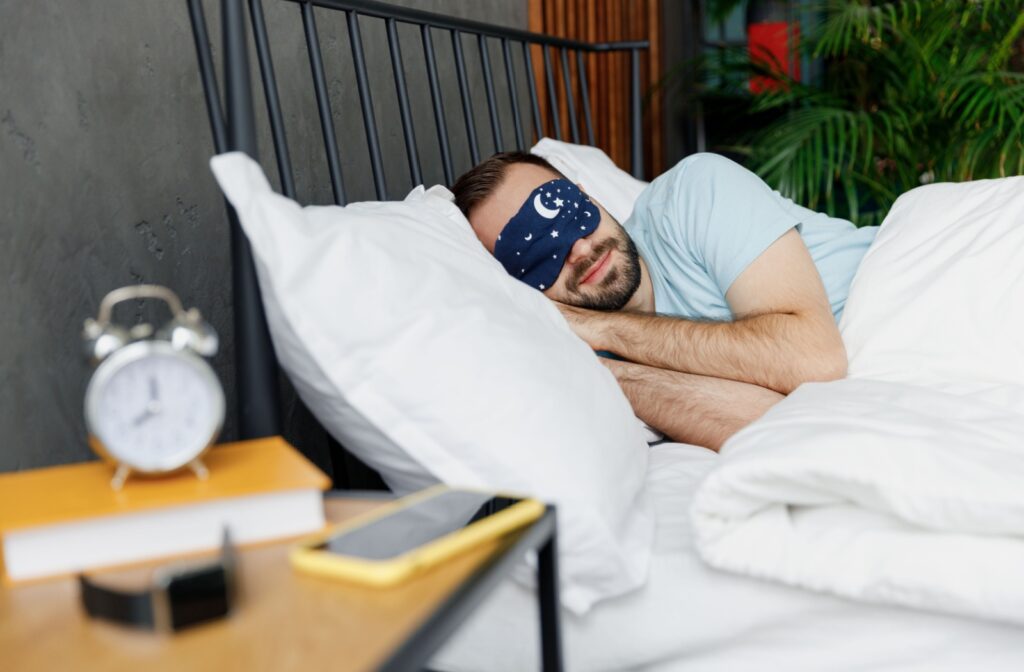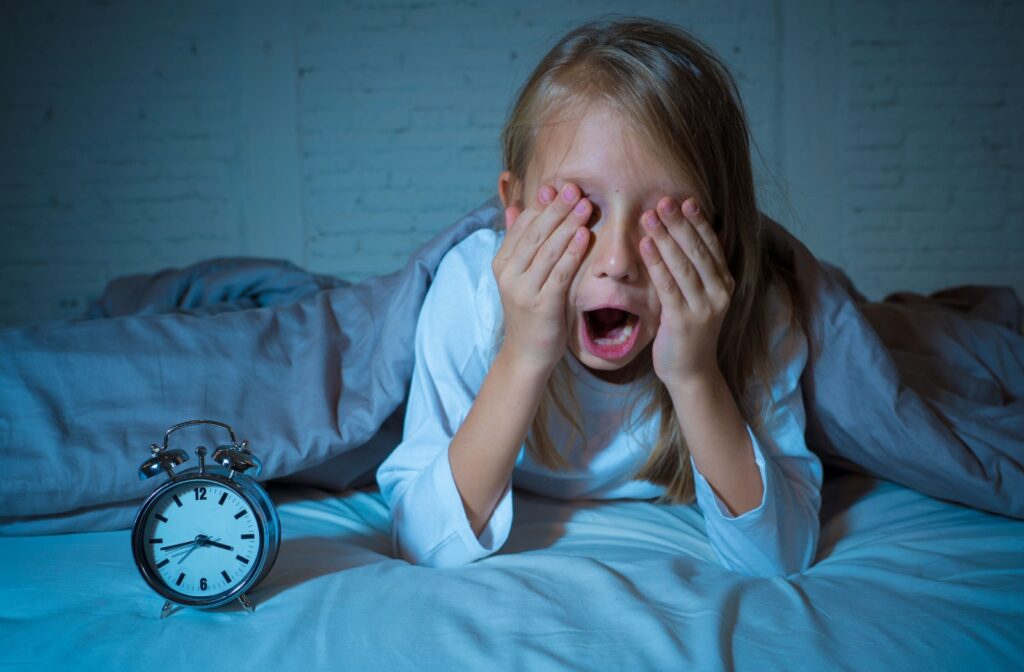It’s safe to say that few of us get the perfect amount of sleep every night. Whether it’s due to juggling work responsibilities, stress, or just one too many Netflix episodes, poor sleep is a common struggle. But did you know that sleep deprivation can affect more than just your energy levels? One surprising side effect is its impact on your eyes, including a higher risk of developing dryness.
What Is Dry Eye Disease?
Dry eye disease is more than just occasional eye discomfort. It’s a chronic condition that occurs when your eyes either fail to produce enough tears or the tears evaporate too quickly due to poor tear quality. This may sound minor, but if left untreated, dry eyes can affect your vision, comfort, and overall quality of life.
Symptoms of Dry Eye Disease
Do your eyes frequently feel dry or tired? Or do you notice an uncomfortable burning sensation halfway through your day? These could be signs of dry eye disease. Here’s a quick summary of the most common symptoms:
- Persistent dryness
- Redness or inflammation
- A gritty feeling, as if something is stuck in your eye
- Sensitivity to light
- Blurred vision
- Excessive watering of the eyes (the body’s reflex to dryness)
If any of these sound familiar, it’s worth investigating potential underlying causes.
What Causes Dry Eyes?
Dry eye disease can be caused by a variety of factors, such as:
- Age: Tear production tends to decrease with age.
- Environment: Living in dry or windy climates can cause tears to evaporate more quickly.
- Screen usage: Spending long hours staring at screens reduces the frequency of blinking, which, in turn, affects the tear film.
- Health conditions: Conditions such as autoimmune diseases and hormonal imbalances can affect tear production.
- Medications: Some antihistamines, antidepressants, and blood pressure medications list dry eyes as a side effect.
But one factor that’s often overlooked? Sleep.
How Does Sleep Affect Your Eyes?
Getting a good night’s sleep isn’t just about preventing under-eye bags or improving your mood. Sleep is vital for your entire body, including your eyes. During sleep, your eyes undergo essential restorative processes. The tear gland recharges, the surface of your eye (called the cornea) heals minor irritations, and your tear film becomes balanced.
When you don’t get enough sleep, these processes are interrupted, which can directly worsen or even trigger dry eye symptoms.
Why a Lack of Sleep Can Cause Dry Eye Symptoms
Not getting the recommended 7 to 9 hours of sleep each night doesn’t just leave you feeling groggy; it also has a direct impact on your eyes. Here’s how sleep deprivation contributes to dry eyes:
1. Reduced Tear Production
Tear glands rely on sleep to produce a healthy amount of tears. When you’re sleep-deprived, your tear production may drop, leading to poor lubrication on the surface of your eyes. This dryness can make your eyes feel gritty and irritated.
2. Poor Tear Film Quality
Your tears aren’t just water. They’re a complex mix of water, oil, and proteins that form a protective film over your eyeballs. Lack of sleep disrupts the balance of these components, weakening the tear film and leading to the quicker evaporation of tears.
3. Increased Stress Hormones
Sleep deprivation increases your body’s production of cortisol, the stress hormone. High cortisol levels can promote inflammation throughout the body, including the eyes. This inflammatory response can worsen dry eye disease symptoms or create new eye discomfort.
4. Heightened Eye Strain
When you’re tired, your eyes work harder to focus correctly. Combine this with screen time (hello, late-night doom-scrolling), and you’ve got a recipe for overworking your eye muscles. This increased strain makes you more prone to dryness.
5. Reduced Blinking
Did you know that blinking is key to a healthy tear film? Blinking spreads tears evenly across the surface of your eyes, keeping them hydrated and lubricated. Unfortunately, sleep-deprived individuals tend to blink less often, further contributing to symptoms.
Dry Eye Treatment

The good news? You don’t have to put up with the discomfort of dry eyes and sleepless nights. There are plenty of treatment options to get your symptoms under control:
- Artificial Tears: Over-the-counter lubricating eye drops can provide temporary relief from dryness.
- Lifestyle Adjustments: Increasing your water intake, using a humidifier, and limiting screen time can significantly improve your well-being.
- Prescription Medication: For long-term treatments, talk to your optometrist about medications that can stimulate tear production.
- Eye Masks: Using warm compresses or heated eye masks can help improve oil production in tears, thereby reducing evaporation.
When to Talk to Your Optometrist About Sleep & Dry Eyes
If your dry eye symptoms persist or seem to worsen, it’s time to consult an optometrist. We can help determine whether poor sleep is the primary cause or if other factors are in play. We can also assess your tear quality, evaluate the health of your eye’s surface, and provide tailored treatment recommendations.
Additionally, if sleep struggles are impacting your overall health, consider discussing your concerns with a healthcare professional. Improving your sleep hygiene could be the key to healthier, happier eyes.
Prioritize Sleep, Protect Your Vision
Sleep and eye health are closely linked. Addressing both issues can reduce symptoms of dry eyes and improve vision and comfort.
InVision Eyecare encourages our patients to make small changes, such as limiting screen time before bedtime, adhering to a consistent sleep schedule, and establishing a relaxing nighttime routine, to support their eye health. Contact us today to learn how we can help manage your dry eye symptoms, including those caused by poor sleep habits.



